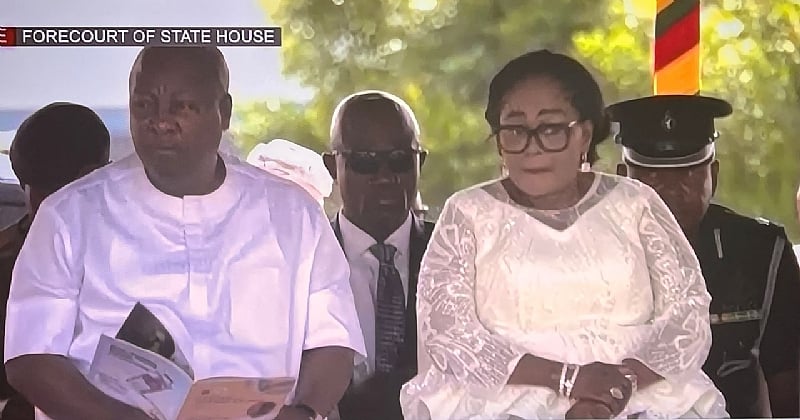Ghana today observes its maiden National Day of Prayer and Thanksgiving, a landmark spiritual event that signals a new chapter in the nation’s civic and religious life.
Led by President John Dramani Mahama, the day’s activities are being held under the theme “One Nation Under God: Giving Thanks, Seeking Grace,” and aim to bring Ghanaians together in collective gratitude and reflection. The initiative also seeks divine guidance as the country confronts pressing national challenges.
The day’s observance features two major interfaith ceremonies in Accra—a grand interdenominational Christian service at the Forecourt of the State House starting at 8 a.m., and a Muslim prayer service at the Ghana National Mosque in Kanda at 12 noon. Thousands of worshippers are expected at both venues, united by a common dress code of white attire, symbolising peace, purity, and national unity.
President Mahama, in a televised address ahead of the celebrations, described the occasion as “a sacred moment in our national journey” and reiterated his belief that Ghana’s strength lies in its spiritual and moral unity. The President first proposed the idea during his 2024 campaign, calling for a dedicated day to reflect, pray, and give thanks—a vision that has now become reality.
The National Prayer and Thanksgiving Committee, chaired by former Minister Elvis Afriyie Ankrah and coordinated by Prophet Dr. Akwasi Agyemang Prempeh, has overseen months of preparation to ensure the successful rollout of the event across all 16 regions. With the support of leaders from both Christian and Islamic communities, the committee has mobilised churches, mosques, and local groups to organise parallel prayer sessions in towns and cities nationwide.
Religious leaders have strongly endorsed the initiative. The Christian Council of Ghana and the Office of the National Chief Imam have both released statements urging full participation. Their collective support has transformed the event into a powerful symbol of interfaith unity.
“This is more than a ceremony—it’s a call to national healing,” said one cleric at a regional service in Kumasi, echoing sentiments shared across the country.
Security has been tightened at all major venues to ensure peaceful observances, while the order of service has been carefully designed to reflect the diversity of Ghana’s faith traditions. Prayers will cover key areas such as peace and security, economic stability, good governance, education, and social cohesion.
Beyond official ceremonies, the spirit of the day has reached the grassroots. Families, communities, and individuals are organising their own prayer and thanksgiving sessions at home, in markets, and in workplaces—demonstrating the widespread embrace of this new national tradition.
The choice of July 1, which coincides with Republic Day, adds deeper symbolic meaning. While Republic Day marks Ghana’s political independence, the National Day of Prayer and Thanksgiving anchors that freedom in spiritual reflection, creating a lasting synergy between civic pride and moral grounding.
Observers say today’s event may prove to be one of the most significant national moments in recent memory—not just for its scale, but for its potential to influence the national psyche. As Ghanaians unite in prayer, hope, and thanksgiving, the government is optimistic that this shared expression of faith will help foster social harmony and national renewal.
The success of this year’s observance could mark the beginning of a powerful annual tradition, one that not only honours Ghana’s religious heritage but also reinforces its collective vision for the future.
As the nation bows its head in prayer today, it also lifts its eyes toward a future built on unity, purpose, and grace.


